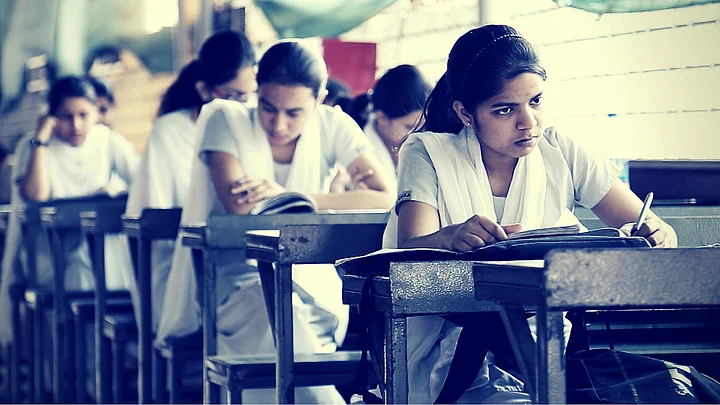During a recent visit to Kota, Rajasthan Governor Kalyan Singh suggested a regulatory body to monitor coaching institutes.
But will that bring down student suicides?
“There is no connection”, says an exasperated Pramod Maheshwari who started Career Point more than two decades ago. Welcoming the move, he maintains that the government needs to analyse its own schizophrenic educational policy and recognise the institutes.
But just how much control are the coaching institutes willing to give up? The Quint looks at the pros and cons of regulating the education business.
1. Should an Age-Limit Be Set?
Yes, says Mentor-Director at IIT Guwahati, Prof Gautam Barua. Currently, coaching institutes admit students regardless of age, academic history, or aptitude. In Kota, children as young as 13 are preparing for the IITs, an exam that they will only be eligible for after four years. The point of contention is the undermining of the school education system.
How can a school-going child be attending coaching classes, asks Prof Barua.
The Parliament needs to enact a law wherein these coaching institutes are not allowed to hold classes during school hours, or they should only be allowed to admit students who have passed Class 12. Such a law would also help put an end to dummy schools that admit a student on their rolls without making attendance mandatory.Prof Gautam Barua, Mentor-Director, IIT Guwahati
Considering that all major coaching institutes offer these foundation courses (Class 8 and above), government interference, regulation, or abolition is unlikely to ensure compliance.
2. Should an Entrance Test Be Made Mandatory?
Yes, say educationists and owners of coaching institutes.
In the early 1990s, Bansal Coaching Classes – the first institute that set up shop in Kota – was conducting screening tests to limit the number of admissions, to suit their limited infrastructure. But as more coaching institutes came up and expanded, the capacity to take in students also increased and screening tests were abandoned.
We are open to conducting screening or aptitude tests for students, to test if they are IIT material. Regulations that are in the students’ interest like providing hostel rooms, healthy food, limiting the number of students in a classroom, co-curricular facilities... I don’t think anyone would be averse to that.Pramod Maheshwari, Director, Career Point
3. Should the Government Dictate Curriculum?
No, is the resounding answer from Kota’s coaching hub.
This would be non-negotiable, considering each coaching institute has designed, evolved and perfected its own curriculum over the years. A recent survey estimated that almost 26% of the total number of children in India attend private coaching. The evolution of small home coaching centres into country-wide institutions that deliver unparalleled academic results reflects the failure of our country’s education policy.
“We are a necessary evil. If they ask us to implement the same curriculum that’s taught in government schools, then how will students learn and how will we breed academic excellence”, asks Pramod Maheshwari.
4. Should Fees Be Regulated?
This is tricky territory.
The coaching industry in India generates revenue of Rs 24,000 crore, according to a conservative estimate by the Committee of Eminent Persons constituted to review the current JEE system for admission into the IITs.
Currently, coaching institutes charge close to Rs 70,000 for a year’s course and are bound to vehemently oppose any interference in their fee structure.
5. Should Coaching Institutes Get Government Recognition?
The government is likely to tread cautiously on the question of legitimising coaching institutions for two reasons.
One, it will amount to an admission of failure on school education.
Two, they will no longer be able to distance themselves from the problem of student suicides. The government will be held responsible for adding to the stress as much as the coaching institutes.
The fact of the matter is that India’s “shadow education system” is as mainstream as it gets – it’s worth big money. It is an industry that’s single-handedly driving the economy of small towns like Kota, but remains unregulated and unrecognised by the Central government. As a demand that finds resonance across the board, the question is – how long can the government keep it’s head in the sand?
